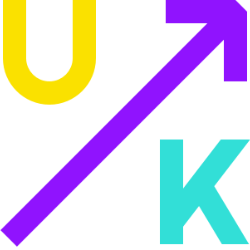Talk to a specialist

Darren Wingfield
Commercial Manager
Leave your details below and we’ll give you a call to chat about how we can help your business move forward.

Darren Wingfield
Commercial Manager
Leave your details below and we’ll give you a call to chat about how we can help your business move forward.



We are constantly evolving our role and perception of what accountants can do for your business. Let us help you take control of today’s finances whilst plotting the course to a brilliant future, together!
Browse sectors


Average increase in Gross Value Added throughout the UK in 2022

Our clients grew over 4x the average UK business during 2022

We will save you time and remove the stress and fear that finances can bring to many business owners.
Accountancy is just the start for us as we help you take control, plan ahead and ultimately realise your full potential.
We help you stay ahead of the curve with new business knowledge due to our commitment to train our team as Advisors as well as Accountants.
We add sparks of inspiration to your business on a regular basis and don’t just see you once a year like many accountants do.
We will save you time and remove the stress and fear that finances can bring to many business owners.
Accountancy is just the start for us as we help you take control, plan ahead and ultimately realise your full potential.
We help you stay ahead of the curve with new business knowledge due to our commitment to train our team as Advisors as well as Accountants.
We add sparks of inspiration to your business on a regular basis and don’t just see you once a year like many accountants do.
Don’t worry we are governed by some of the most recognised financial bodies and they keep us in check!




Help build some of the best businesses in the UK
Evolve your role from an accountant to becoming an awesome business advisor
Work flexible hours and receive an excellent benefits package which allows you to have a life outside of work
We love to learn and speak about tech as much as we do tax which means you stay ahead of the curve
Help build some of the best businesses in the UK
Evolve your role from an accountant to becoming an awesome business advisor
Work flexible hours and receive an excellent benefits package which allows you to have a life outside of work
We love to learn and speak about tech as much as we do tax which means you stay ahead of the curve